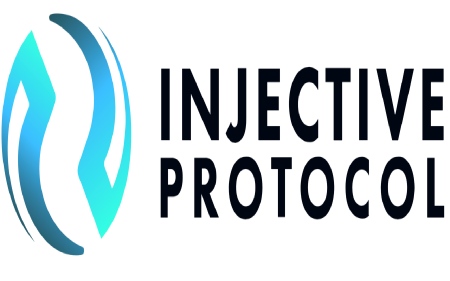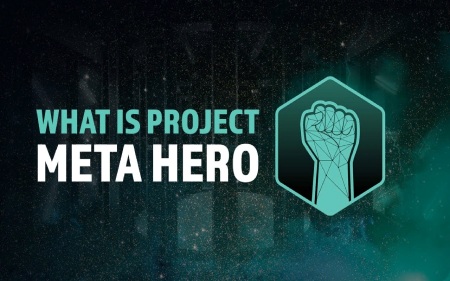Injective (INJ): what is it and how does it work?

Injective is a blockchain that aims to combine the efficiency of traditional finance with the transparency of decentralized exchanges.
All exchange parameters are open source, which means the platform is transparent and easy to use. Let's take a closer look at how Injective works.
What is Injective?
Injective is a decentralized exchange (DEX) built on the Cosmos ecosystem using the Cosmos SDK. Injective was the first Tier 1 exchange in the Cosmos ecosystem to be compatible with the Ethereum Virtual Machine (EVM) and allow cross-chain exchanges between Ethereum and the Cosmos ecosystem.
With an average blockchain time of about one second, Injective is one of the fastest blockchains on Cosmos. The blockchain time offered by Injective provides a continuous and enjoyable user experience by eliminating latency and wait times. Applications that require instant updates, responsiveness, and low-latency interactions can benefit from this feature.
The protocol utilizes a cross-chain bridge that allows traders to access cryptocurrencies from blockchains such as Ethereum, Polygon, and Polkadot.
Unlike other popular decentralized exchanges such as Uniswap or Bancor, Injective's protocol does not use AMM (Automated Market Maker) to manage liquidity. Instead, Injective follows the order book model, which has been widely used on centralized stock and cryptocurrency exchanges for years.
INJ, Injective's proprietary token, is used to secure the network, pay for transactions, and participate in protocol management.
Who created Injective?
Eric Chen and Albert Chon founded the Injective protocol in 2018.
Eric Chen is a finance graduate of the Stern School of Finance at New York University. He worked as a Venture Partner at Innovating Capital, one of the first investors in the Injective protocol.
Albert Chon worked as a software engineer at Amazon after earning a master's degree in computer science from Stanford University.
Injective has raised over $50 million dollars from prominent investors including Pantera Capital, Jump Crypto, and Mark Cuban.
How does the Injective protocol work?
The Injective blockchain is a Cosmos-based decentralized exchange (DEX) protocol that also allows for the transfer and exchange of Ethereum tokens.
The blockchain is designed to address the scaling and bandwidth limitations faced by many Tier 1 blockchains, while allowing developers to utilize familiar Ethereum development toolkits.
Traders can access several modules of the DEX injector blockchain:
- Auctions: allow token holders to bid on baskets of tokens accumulated through trading fees. INJ tokens received by the highest bidder are burned or withdrawn from circulation according to protocol.
- Exchange: helps traders create and exchange new spot and derivative positions. Order book management, trade execution, order matching and settlement are all programmed on the blockchain.
- Insurance: supports underwriters who insure the derivatives markets posted on the exchange.
- Oracle: receives real-time price data to value assets on the exchange.
- Peggy: links the Injective protocol to the Ethereum blockchain, allowing ERC-20 token holders to convert their tokens to native tokens on Cosmos.
Injective Exchange
The Injective Exchange is a model of an order book exchange.
Exchange components such as the user interface, smart contract functionality and order book management system are open source. The goal is to create a platform that is as transparent and accessible as possible.
Injective Exchange also aims to eliminate leading by implementing a trade execution coordinator (TEC). The TEC creates a delay so that new orders cannot be placed ahead of old orders.
Injective Hub
Injective Hub is a dashboard that provides users with the visibility and functionality they need to maximize their use of the protocol.
Users can access the Injective Hub to place their INJ tokens to become network validators responsible for maintaining the security of the blockchain.
INJ holders can also delegate their tokens to network validators and get rewarded in return in the form of INJ tokens.
What is the purpose of the Injective (INJ) token?
The INJ token has many features in the Injective protocol that give it value:
- Proof of Stake (PoS) security: INJ token holders can post their tokens to be rewarded for securing the Injective protocol.
- Governance: INJ holders can vote for changes to the Injective protocol and influence the future development of the platform.
- Node incentives: relay nodes can earn up to 40% of the trading fees paid to INJ from the orders they relay. The remaining 60% of trade fees are burned, reducing the supply of INJ.
- Use as collateral: INJ can be used as collateral in derivatives markets.
Why use the Injective protocol?
Traders on decentralized exchanges who want to pay the lowest possible fees while benefiting from the efficiency of the order book model and the transparency of a decentralized exchange can find value in the Injective protocol.
Investors looking to generate income on their tokens may find it useful to delegate their INJs to validators to receive a portion of the reward.
Developers looking to build more efficient blockchain applications using familiar toolkits and programming languages may also find value in the Injective protocol.
Conclusion
The Injective protocol will undoubtedly find an audience among traders interested in its decentralized nature, open source nature, and ease of use.
The promise of lower commissions and control over the amount of INJ's own tokens in circulation thanks to regular burns is another argument in favor of its use.
You can also familiarize yourself with fraudulent brokers.




Post a Comment